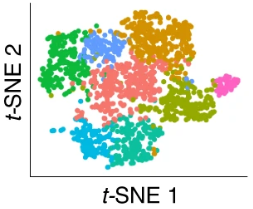The immune system plays a powerful and central role in human health. The adaptive arm of the immune system consists of B and T cells that recognize antigen using lymphocyte antigen receptors, whose functionality and specificity is derived from gene rearrangements that form the T cell receptor (TCR) and B cell receptor (BCR). Methods to profile the phenotype and repertoire of immune cells typically rely on expensive single-cell sorting based approaches and are difficult to apply to low-input clinical samples, where antigen-specific cells are scarce. Towards this end, we have developed technologies that enable the profiling of single-cell transcriptomes with high resolution and scalability as well as the recovery and sequencing of lymphocyte antigen receptors. This allows us the ability to profile large numbers of cells recovered from clinical samples, to analyze the phenotypes of T and B cells in the context of their clonal lineages, and infer the epitope specificities of individual T and B cells. Using these tools, we are currently investigating clonotype-phenotype relationships among CD4+ peanut reactive T cells in patients with food allergy undergoing oral immunotherapy, the nature of B cell responses elicited by vaccinations, and the mechanistic underpinnings connecting immune cells to other cells in the tissue environments in settings such as mouse models of cancer.


